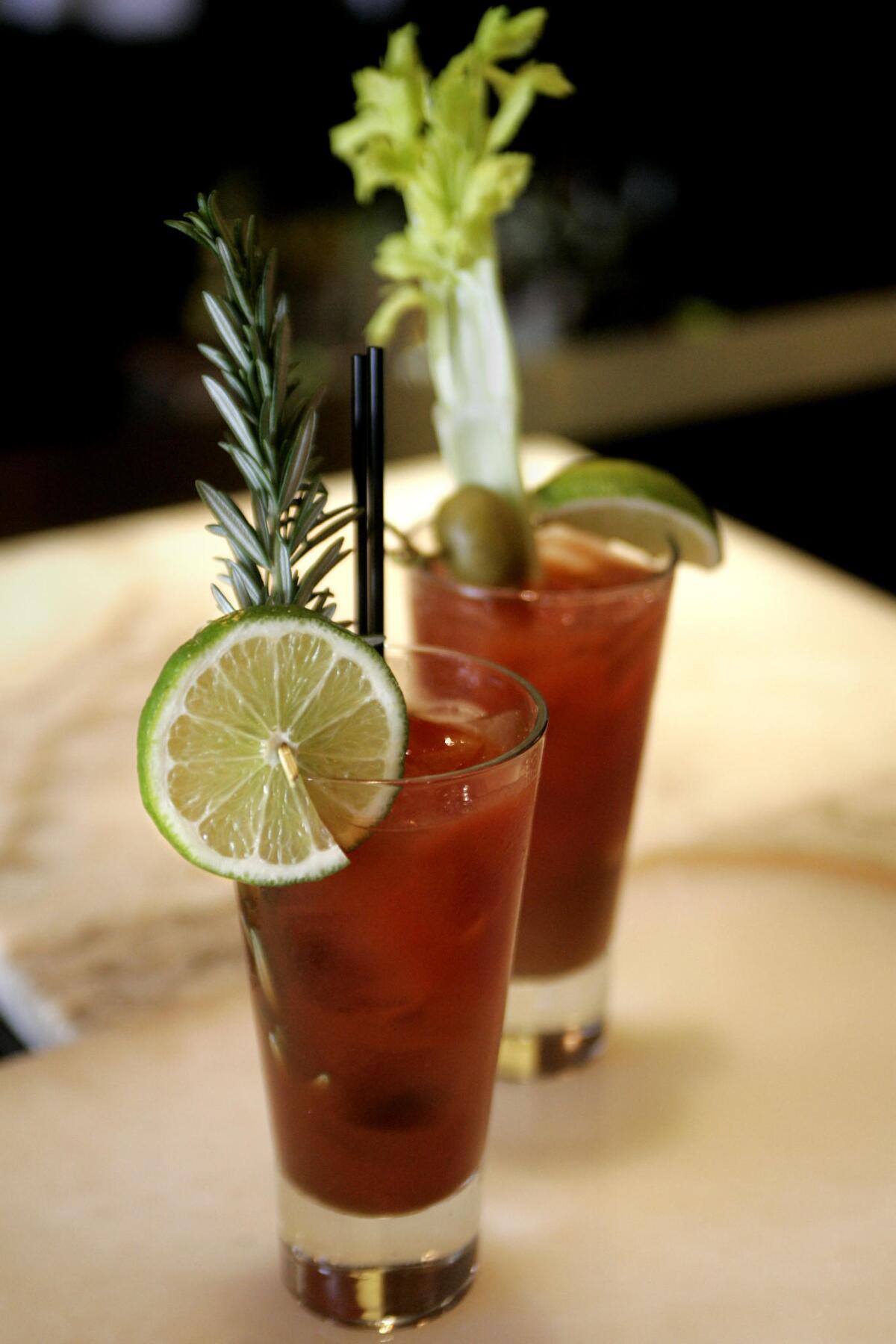A Word, Please: Lowercase treatment in newswriting can humble ‘important’ words

- Share via
If you’re writing about the president of a company, do you write his title with a capital P? What if he’s the president and founder?
What if he’s the chief executive officer, which everyone knows stands for CEO and not ceo? Do you capitalize the name of a local restaurant’s signature chili-spice fried chicken or their beef Wellington? And what’s up (literally) with bloody marys?
In a written work, too many capital letters can be the hallmark of an amateur — or a sales pitch. Companies like to treat their products, properties and people as if they’re all proper names even when they’re not. Timid writers seek to oblige, uppercasing words out fear of dishonoring someone’s title or trademark.
But if you want your writing to look more like professionally edited work, you should do the opposite. Newswriting shuns the idea that news articles should be deferential to business. If a nationwide restaurant chain wants everyone to refer to their spicy shrimp tacos as Spicy Shrimp Tacos, too bad.
If the same three words in a generic sense can describe the tacos, that’s how news most news publications lean. Obviously, that doesn’t work with a dish like Hula Pie because hula pie in the generic sense doesn’t mean anything. So the only times you’ll see a traditional news outlet treat a product as a proper name is when the name can’t be interpreted as generic description.
This goes double for “the company.” Yes, a court filing or other legal document would designate a company as “the Company.” But outside of a court of law, you don’t have to capitalize it.
Titles are harder. A senator is lowercase. But when you’re using the title immediately before her name, it’s uppercase: Sen. Jane Doe.
Representative can be abbreviated, but it’s capitalized before a name: Rep. John Smith. House speaker, senate majority leader, minority whip and chairman are all capitalized when they’re used as part of the name, House Speaker Nancy Pelosi. But they’re lowercase when referring to her as just the speaker of the house. Ditto that for the president.
Business titles are far less likely to be capitalized. You may be the founder, chief executive officer and president of your company, but unless your employees call you Founder Jones or President Rodriguez, these terms are always lowercase.
New terms like COVID are difficult because there’s no consensus yet on how to write them. The Associated Press Stylebook calls for uppercase COVID and COVID-19 and lowercase coronavirus. AP made waves recently when they decided their style would now capitalize Black as a race. The backlash was nothing short of hysterical.
Some terms are capitalized when they’re new, like internet, but over time get incorporated into the language as generic terms. Most tech terms, including email and web, are usually lowercase now.
Food and drinks pose some of the trickiest capitalization conundrums. The name Bloody Mary, according to Wikipedia, is associated with several different historical figures. And if you’re referring to Queen Mary I of England as Bloody Mary, obviously that’s capitalized because it’s a nickname.
But since the drink was invented, the name has less and less to do with any person. That’s why, even though many legitimate authorities would capitalize the name of the cocktail, Associated Press Style calls for lowercase bloody mary.
Some food and drink names are more flexible. You can lowercase french fries to comply with AP style, or you can dub them French. Sparkling wines from the Champagne region of France are Champagne in AP style, but other publishers call them champagne.
Brazil nuts, Cobb salad, Brussels sprouts, Buffalo wings, beef stroganoff and beef Wellington follow no clear pattern for capitalization. If you don’t want to buy the AP guide, you can check a dictionary or just search for the term on the website of a major newspaper and follow their lead.
The writer is the author of “The Joy of Syntax: A Simple Guide to All the Grammar You Know You Should Know.” She can be reached at JuneTCN@aol.com.
All the latest on Orange County from Orange County.
Get our free TimesOC newsletter.
You may occasionally receive promotional content from the Daily Pilot.





